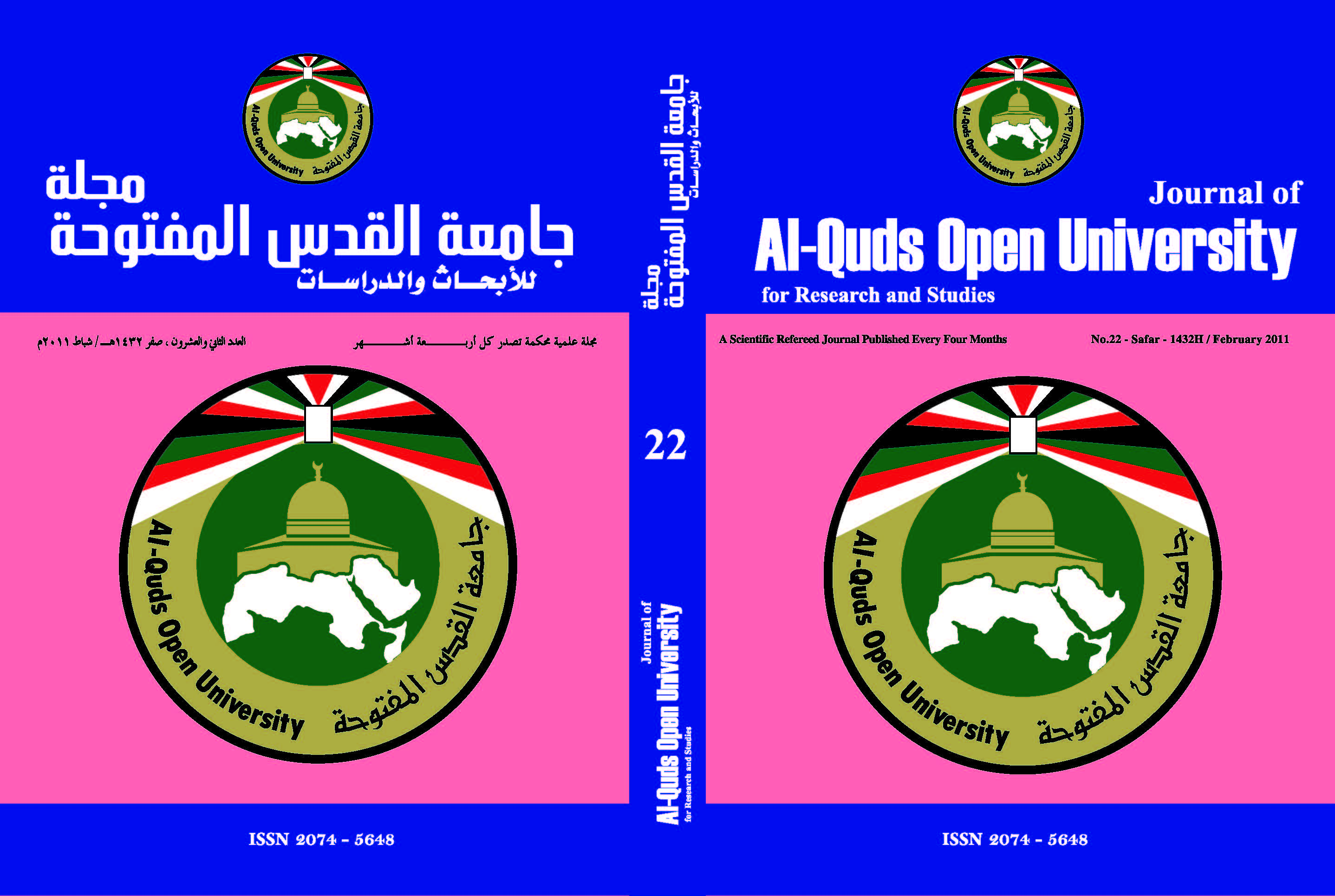Detection of Three Honeybee Viruses in Palestine Using RT-PCR
Keywords:
DWV, ABPV, SBV, Honeybee, Apis mellifera, RT- PCR, PalestineAbstract
Honeybee viruses cause a serious problem that beekeepers suffer
persistently from, in Palestine. The presence of honeybee viruses is responsible,
with other factors for the recurrent apiary collapse. In the current research, adult
and immature bee samples collected from Jenin (1214) , Tulkarm (1016) and
Nablus (1032) districts were tested for three honeybee viruses using RT- PCR
and specific primers. Deformed Wing Virus (DWV) , Acute Bee Paralysis
Virus (ABPV) , and Sac Brood Virus (SBV) were detected in the collected
samples with different infection levels. The DWV was the predominant virus
infecting honeybees in the studied Palestinian territories. Infection frequencies
with this virus were 34 - 86% and 13 - 59% for adult bee workers and broods
respectively. ABPV was the second most virus attacking bee colonies in the
studied regions, followed by SBV. The maximum infections of adult bee
workers with ABPV was 22% whereas 18% infection was recorded for SBV.
The mixed infection with these viruses elucidates that they act together to
cause apiary failure. This is the first report of the detection of bee viruses in
Palestine using molecular techniques.
Downloads
Published
How to Cite
Issue
Section
License
- The editorial board confirms its commitment to the intellectual property rights
- Researchers also have to commit to the intellectual property rights.
- The research copyrights and publication are owned by the Journal once the researcher is notified about the approval of the paper. The scientific materials published or approved for publishing in the Journal should not be republished unless a written acknowledgment is obtained by the Deanship of Scientific Research.
- Research papers should not be published or republished unless a written acknowledgement is obtained from the Deanship of Scientific Research.
- The researcher has the right to accredit the research to himself, and to place his name on all the copies, editions and volumes published.
- The author has the right to request the accreditation of the published papers to himself.













_2.png)
_.png)
_2.png)
_1.png)
_.png)

